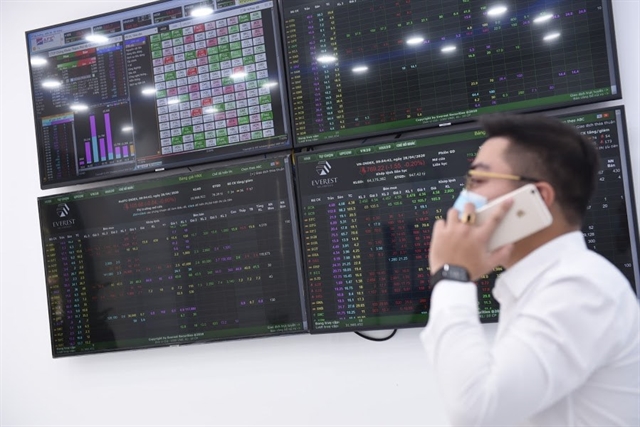[ad_1]

HÀ NỘI — The slowdown in China’s economic growth due to COVID-19, the US Federal Reserve’s policy stance and the business plans of listed enterprises are the main factors driving the Vietnamese stock market in April, said SGI Capital.
In its latest report, SGI Capital said that the slowdown in the Chinese economy caused by the zero-COVID policy would affect the stock market this month.
With a new outbreak of COVID-19 in early March, the Chinese Government imposed lockdowns in many big cities like Shanghai, Shenzhen or other cities with key seaports. As a result, its manufacturing purchasing manager index (PMI) fell back to 48.1 in March, showing stagnation in production despite the loose monetary policies of the state bank.
SGI Capital said that if China persists with its zero-COVID stance, it has to step up measures to support the economy.
Data on the economic activities of China immediately reflected the negative effect. If prolonged, it will also have adverse effects on the global economy in general and Việt Nam in particular as average inventories of enterprises are enough for around two months. The global supply chain is likely to be further disrupted at a point that even monetary and fiscal policies can not be involved.
The Fed’s policies are another factor influencing the market this month. With the unemployment rate at 3.6 per cent and wage growth of 5.6 per cent in March, high inflation amid full employment will be a concern for the Fed. Markets also priced that Fed will hike rates eight times by 0.25 per cent each.
The forecast of a short-term US treasury paying a higher interest rate than long-term US treasuries caused an unusual inverted yield curve, indicating an economic recession.
SGI Capital believes that the current short-term reversal of bond yields is the result of the expectation that the Fed will be very aggressive in raising interest rates in the coming months as inflation has not shown any signs of cooling down.
During this period, the valuation of the US stock market is likely to move within the current reasonable range of the average 5-10 years.
The last factor affecting the market in April is the business plans of listed enterprises for 2022.
“In our reports at the beginning of 2022, we emphasised that the strongest influencer on the Vietnamese stock market will be the business plans of listed companies amid the threats of higher commodity prices, geopolitical uncertainty and interest rates entering a cycle of normalisation to pre-COVID levels,” analysts of SGI Capital said.
“The way businesses adapt, innovate and seize opportunities will create opportunities for strong divergences on the stock market,” said the analyst team.
SGI Capital also realises that there are many firms submitting business plans with strong growth of over 20 per cent to the general meeting of shareholders, which is partly because of the lower results in the second and third quarters of 2021.
However, it noted that the gradual increase of Government bond interest rates to the pre-pandemic level would put pressure on the market’s price to earnings ratio, which is currently in the middle of the pre-pandemic level. At the same time, the country’s economy had just started to recover, the effects of higher inflation had not put pressure on business activities as they do on an economy at the end of the growth cycle.
During the economic recovery period, businesses often see outstanding performance, creating investment opportunities this year, according to SGI Capital . — VNS
[ad_2]
Source link
